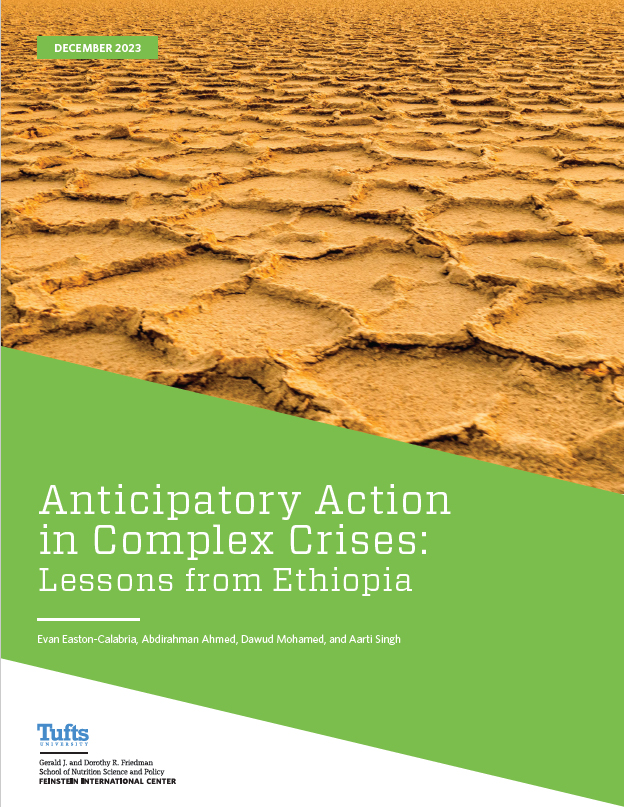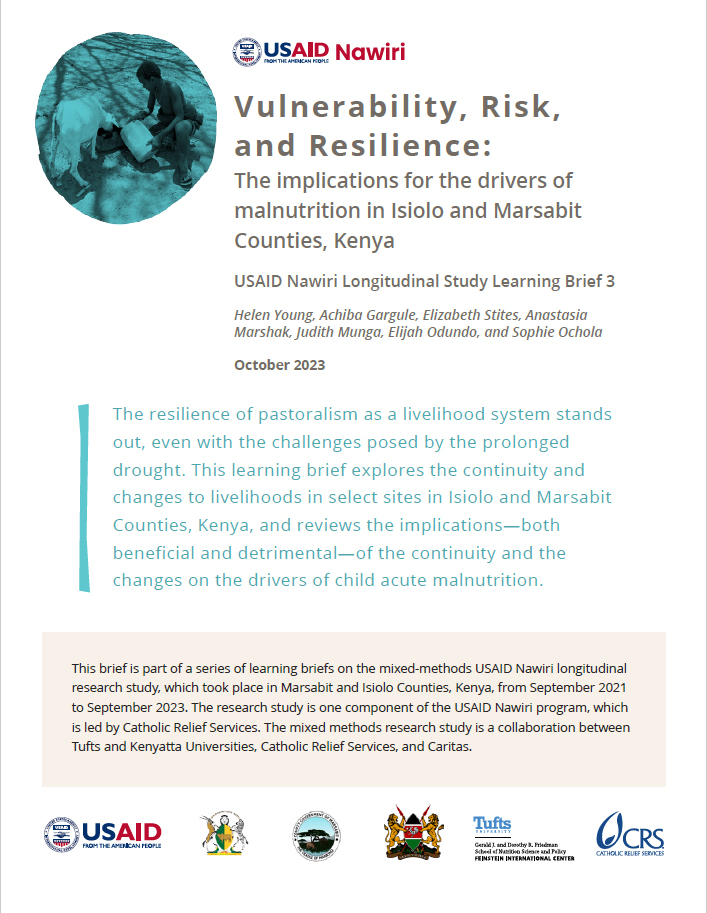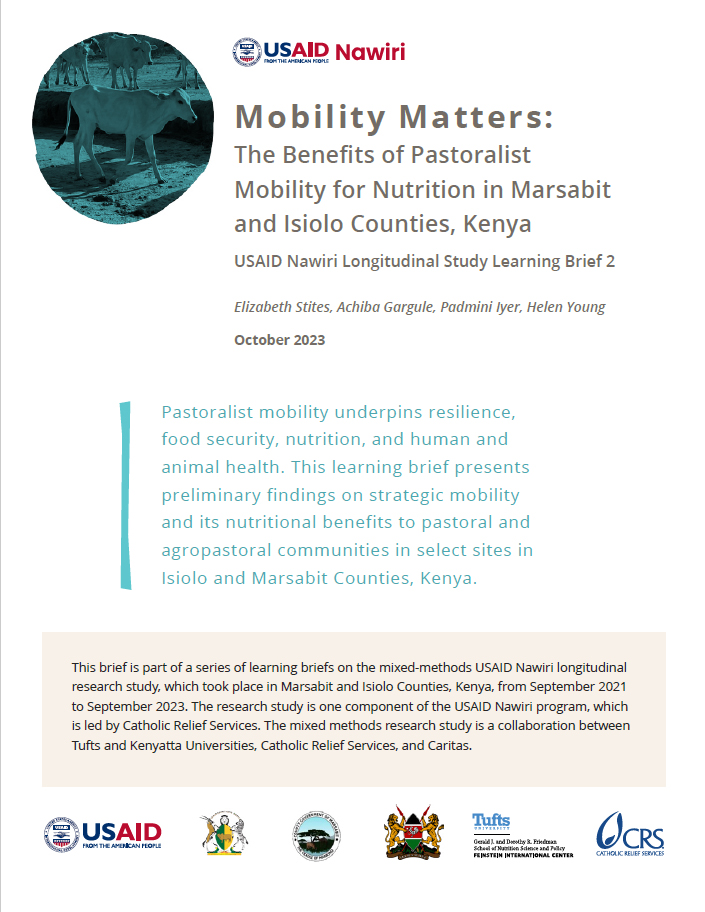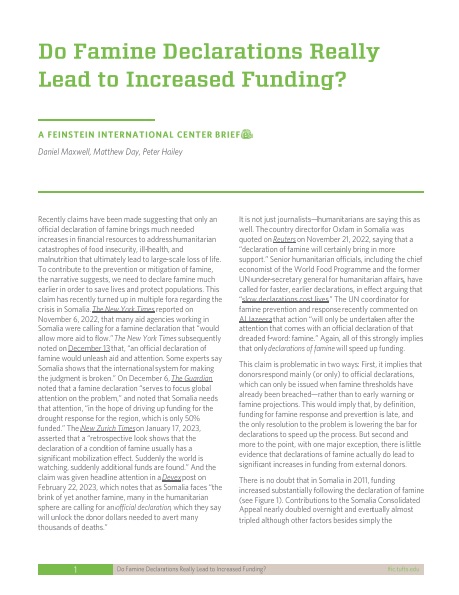“This report is the third in a series of in-depth studies researching and analyzing the impact of conflict and associated factors on trade in Darfur’s main agricultural and livestock commodities. This third study explores both the impact of a decade of conflict and the impact of a decade of food assistance (in-kind food aid and, more recently, food vouchers) on the cereal trade market, as well as the influence of government policy. This work builds on the ongoing market monitoring and analysis carried out by the national NGO, the Darfur Development and Reconstruction Agency (DDRA), since late 2010, supported by Tufts/ FIC. Food assistance has played a vital role in keeping Darfur’s cereal markets functioning and in stabilizing prices, especially in the early years of the conflict. But the full impact of volatile and depressed cereal production in Darfur was evident in 2014 as cereal shortages were widely reported due to a combination of a very poor harvest, insecurity disrupting key production areas, and smaller amounts of food aid available. The report ends with recommendations for a wide variety of stakeholders looking to improve policies or programs in the region.”
Against the Grain: The Cereal Trade in Darfur
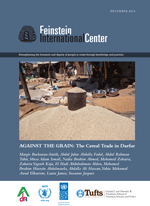
ASSOCIATED PROJECT
SUBJECTS
PUBLICATION TYPE
LOCATION

RELATED PUBLICATIONS
This briefing describes the key elements and issues associated with conflict in pastoralist areas across sub-Saharan Africa.
•
Ce document d’information décrit les éléments clés et les enjeux associés aux conflits dans les zones pastorales d’Afrique subsaharienne.
•
This study examines how anticipatory action was perceived and experienced among Ethiopians living with drought alongside other crises.
•
This learning brief explores the continuity and changes to livelihoods in select sites in Isiolo and Marsabit Counties, Kenya, and reviews the implications of the continuity and the changes on the drivers of child acute malnutrition.
•
This learning brief presents preliminary findings on strategic mobility and its nutritional benefits to pastoral and agropastoral communities in select sites in Isiolo and Marsabit Counties, Kenya.
•
This policy brief examines the relationship between famine declarations and funding since 2011. It shows that, with that one exception, there is little evidence that famine declarations actually result in a rapid increase in funding.
•



